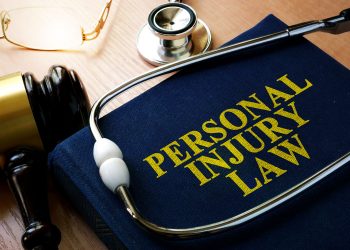If you have been in an accident and are suffering from an injury, it is essential to know your rights. You should consult an attorney before taking legal action against the party who caused you harm. An experienced attorney can assist you in determining what compensation you are entitled to, including pain and suffering, emotional damages, and more.
Pain and Suffering
One of the best ways to protect yourself after an accident is to familiarize yourself with the laws of the land. The right personal injury attorney near me can make a world of difference. In addition to medical treatment, you should also document your injuries and damages as you go along. This can include details such as insurance policies and vehicle invoices.
A guide to personal injury law is an excellent place to start. You may even discover that you were in an accident that wasn’t your fault. If you have been hurt in an accident, you are eligible for reparation from the responsible party’s insurance company. Ask your doctor about any potential claims so you can take advantage of them. Remember to consult with your lawyer before you settle or sue. Some states restrict what you can and cannot claim, and you want to do all you can to avoid getting stuck in a bad situation.
Emotional Damages
If you suffer from emotional distress due to someone else’s carelessness or negligence, you have the right to seek compensation for damages. An experienced attorney can help you determine whether you have a viable claim and guide you through the process.
The type of damages you receive depends on various factors, including the circumstances surrounding the incident and state laws. However, there are three main types of compensation. These are pain and suffering, punitive damages, and economic damages.
A personal injury claim can be a daunting process. Injuries can lead to long-term medical treatment, and you will likely need the help of a qualified attorney. But you might also be eligible for compensation for stress, anxiety, and other types of psychological pain.
In addition to economic damages, you can also pursue non-economic damages. Non-economic damages are not based on actual costs but on the judge’s judgment. These damages include pain and suffering, loss of companionship, and mental anguish.
Superseding Cause
In personal injury law, superseding cause occurs when an unforeseeable event causes the plaintiff’s injuries. The superseding reason breaks the causal chain between an at-fault actor’s reckless act and the subsequent injury.
When a defendant shows that a superseding cause exists, the defendant’s liability for the accident is eliminated. For example, a driver who sideswiped another driver at a red light can avoid liability if he shows that he was not speeding at the time of the crash.
In addition to preventing an at-fault party from liability for the accident, a superseding cause can also impact compensation claims. For instance, if the defendant is a taxi driver, and his passengers are injured in an intersection accident, the driver can claim that he did not see the traffic lights turning red.
However, this scenario is not the only way that a person’s actions may be a superseding cause. Other incidents, such as an act of God, can also interfere with the chain of causation.
Consult an Attorney after Being Injured
A personal injury attorney will help you file a compensation claim. They will examine the facts of the case and assess the likelihood of success. The lawyer will also advise you on possible legal strategies.
After being injured, you should seek a consultation with a lawyer as soon as possible. In many cases, the statute of limitations governing injury claims is limited. If you do not file your claim within a specific timeframe, you forfeit the right to file a lawsuit in the future.
The statute of limitations for a personal injury claim can vary depending on the state where the accident occurred.














